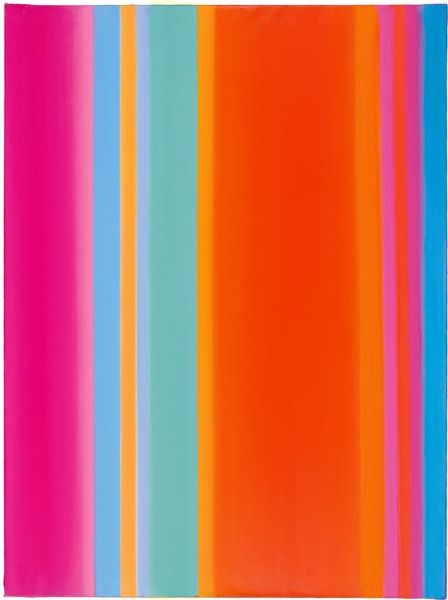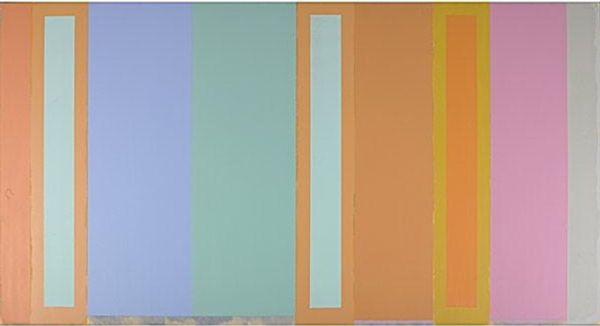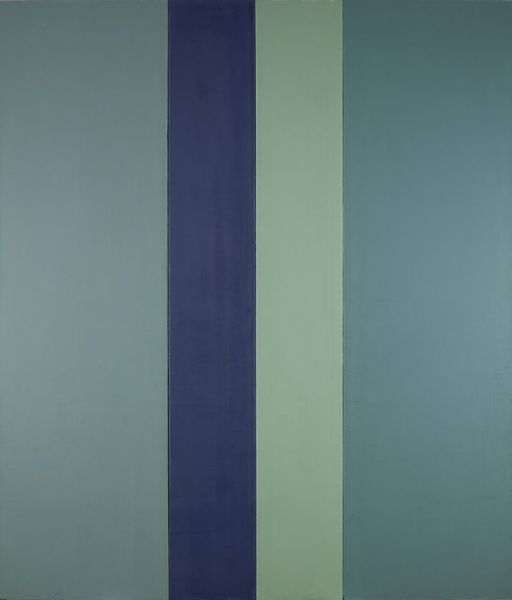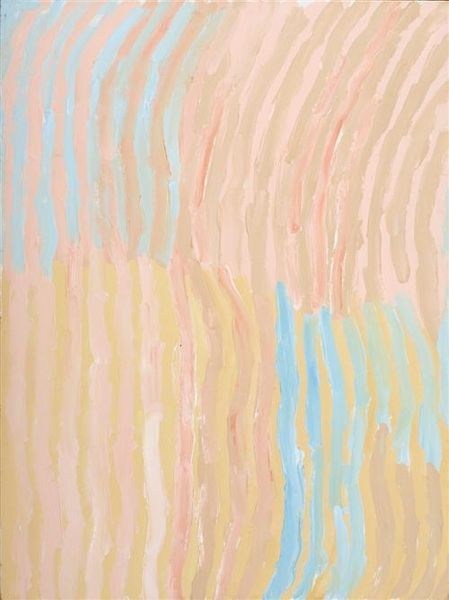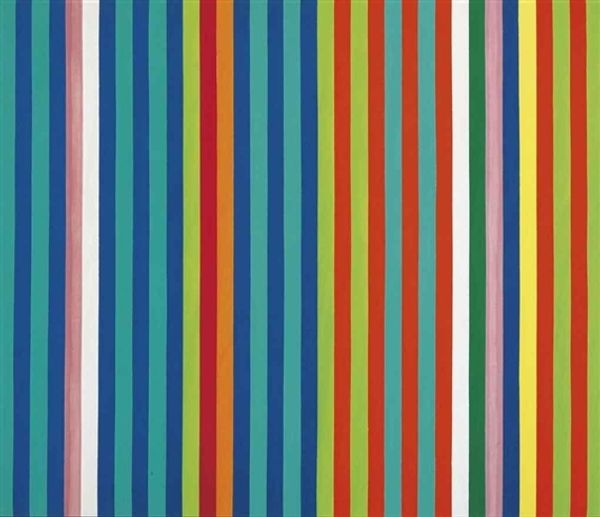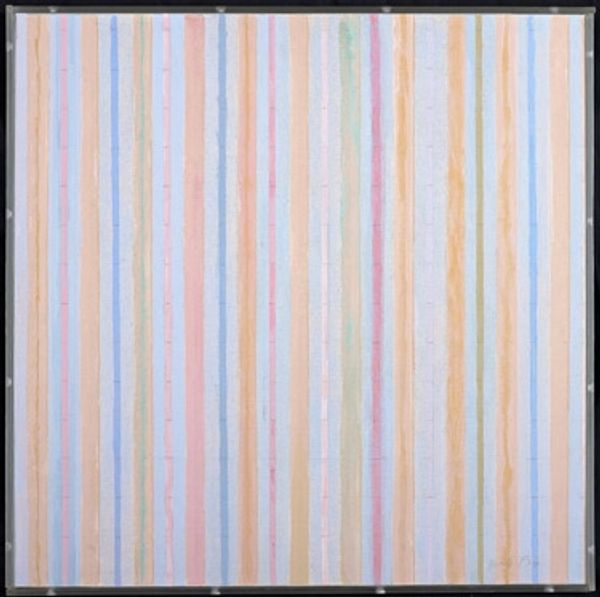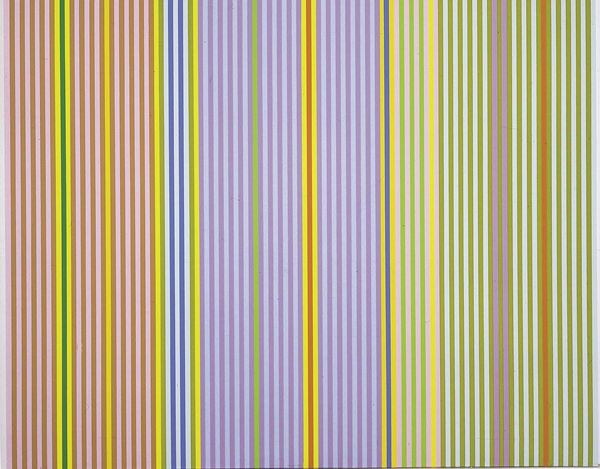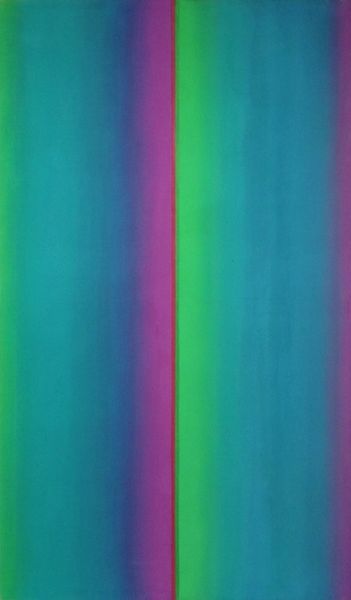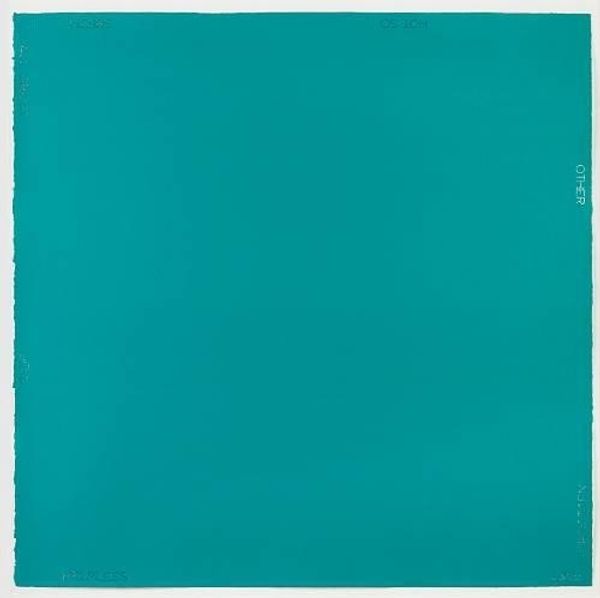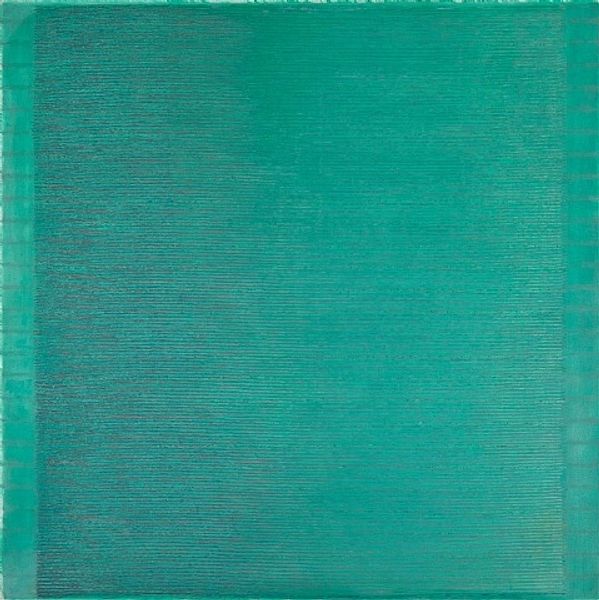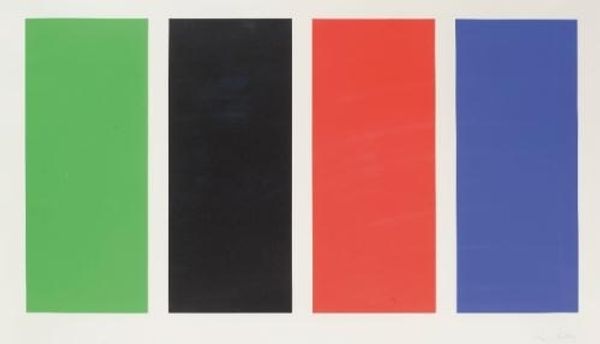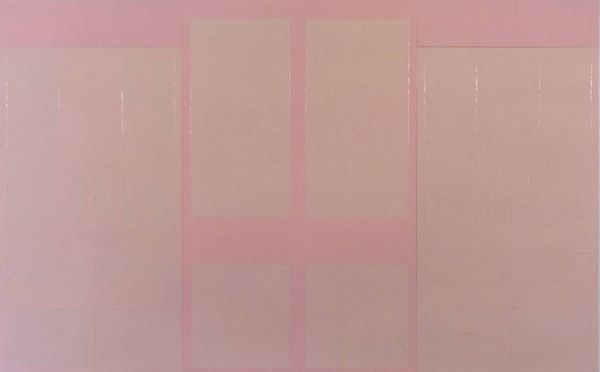
Copyright: Imi Knoebel,Fair Use
Imi Knoebel created "Anima Mundi 10 Ed" with acrylic paint, continuing his exploration of geometric abstraction. Knoebel emerged from the Düsseldorf Academy, where he studied alongside Blinky Palermo and Joseph Beuys. That postwar German art scene questioned traditional notions of art, emphasizing experimentation and process. Knoebel’s minimalist approach can be seen as a reaction against the expressive emotionalism of earlier movements. The title "Anima Mundi," Latin for "world soul," hints at a connection to universal, underlying principles. But this isn’t just pure formalism. The carefully chosen colors and their arrangement evoke specific moods. His art challenges viewers to consider how social and institutional contexts shape what we perceive as art, moving beyond traditional aesthetic judgments. To truly understand Knoebel's work, we might consult artists' statements, exhibition reviews, and critical essays that discuss the social and cultural values. This approach lets us see art as something contingent and historically situated.
Comments
No comments
Be the first to comment and join the conversation on the ultimate creative platform.
